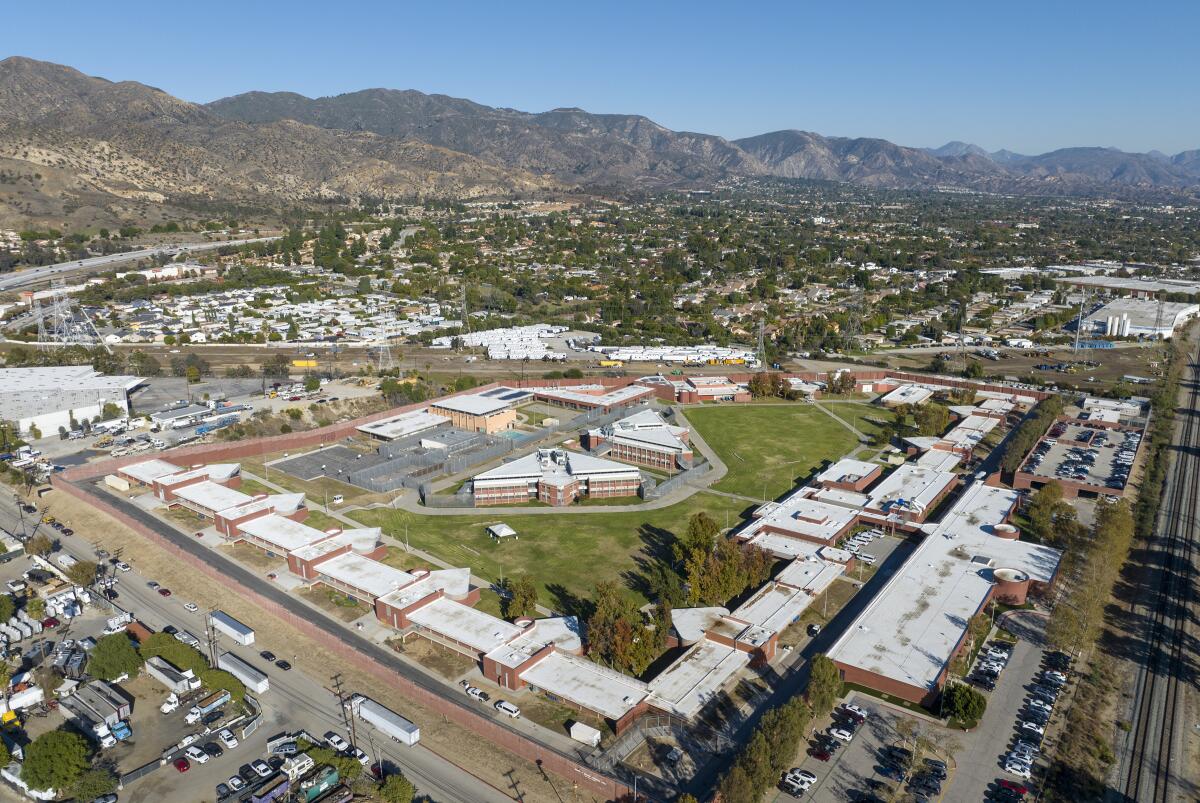Editorial: Closure order may do little to fix problems at juvenile halls

- Share via
Tuesday’s action by the Board of State and Community Corrections finding Los Angeles County’s two juvenile halls “unsuitable” to confine youths is welcome, despite an unfortunate six-week delay. It means the substandard Central Juvenile Hall near downtown and Barry J. Nidorf facility in Sylmar will close within 60 days for conventional housing of young people awaiting court hearings or serving sentences for offenses under juvenile laws.
In implementation, though, the action may amount to little. The county will likely continue to operate two juvenile halls — including Nidorf, which despite the “unsuitable” finding can remain open as a Secure Youth Treatment Facility, a detention center reserved for the most serious cases. SYTFs, as they are known, are beyond the reach of BSCC closure orders.
A portion of Nidorf is already designated an SYTF unit. That’s where 18-year-old Bryan Diaz died earlier this month after ingesting fentanyl that somehow found its way inside despite security measures. Most youths transferred to the county when the state Division of Juvenile Justice closes at the end of June are expected to be assigned to Nidorf.
Closing facilities and transferring troubled youths to other buildings will not change the irresponsible management that is endangering and killing people.
The county also plans to reopen Los Padrinos in Downey, a juvenile hall that closed in 2019 due to a sharply diminished caseload. It will hold juveniles who have been arrested but are awaiting court action.
So it’s less than clear whether the BSCC’s action will mark a turning point in the history of the Probation Department’s juvenile division, which has struggled to properly operate its programs and facilities for more than two decades. Troubled young people will be shuffled among buildings, but whether they become any safer or have better access to classes and other rehabilitative services depends on whether the Probation Department can overcome its dysfunctional culture.
The department has been under fire over the years for employee misconduct and dangerous conditions in the juvenile halls and camps. The BSCC previously found Central and Nidorf unsuitable in 2021 and has since given the county numerous opportunities to fix the problems.
Los Angeles County juvenile halls have been cited for unconstitutionally poor conditions for decades. It’s too late to save them.
Yet both facilities spiraled out of control as staff who complained of dangerous conditions declined to come to work. The diminished staffing exacerbated the problems, leaving youths with few activities and further ramping up tensions — leading to even more staff no-shows.
The Board of Supervisors has endorsed a therapeutic approach to juvenile rehabilitation and last year launched a Department of Youth Development as an alternative to traditional probation. But without changes in state law that currently permit only probation departments to handle court-ordered juvenile rehabilitation, the new department cannot take over most probation functions. That leaves the future of juvenile justice in Los Angeles County as uncertain as it was before the BSCC action.
More to Read
A cure for the common opinion
Get thought-provoking perspectives with our weekly newsletter.
You may occasionally receive promotional content from the Los Angeles Times.












